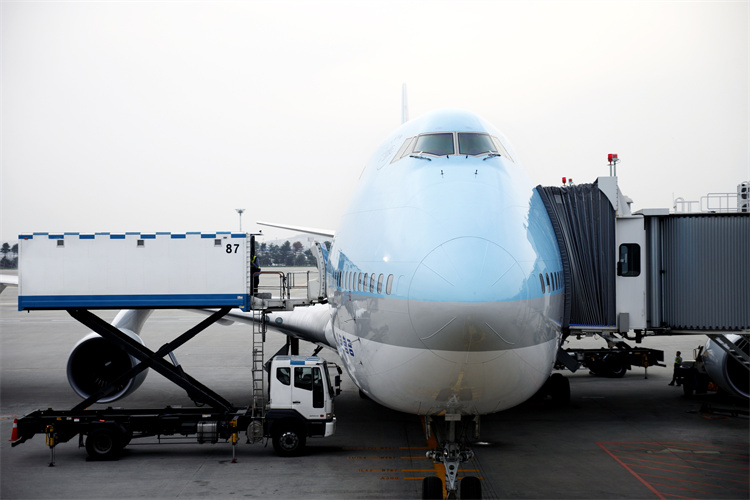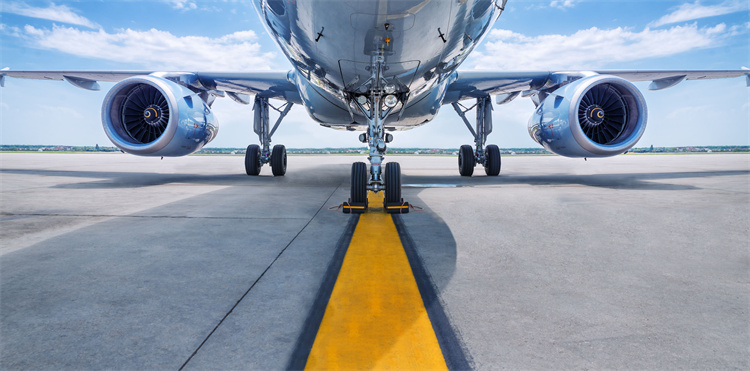Expectations Soar for Air Cargo During Year-End Peak Season

The air cargo industry plays a crucial role in global trade and commerce. The year-end peak season holds significant importance for air cargo operations. This period witnesses heightened activity due to increased demand for international shipping, driven by holiday shopping. Logistics professionals and analysts expect the market's strong performance in the first half of the year to continue. FREIGHT WAVES reports that e-commerce volumes from Asia significantly contribute to this growth. The industry anticipates a 4.5% increase in air freight volumes in 2024, reflecting rising expectations for the upcoming peak season.
Factors Driving Increased Demand in Air Cargo

E-commerce Boom and Air Cargo
Impact of Online Shopping on Air Cargo
Online shopping has revolutionized the logistics landscape. The exponential growth of e-commerce has significantly impacted the demand for Air Cargo services. Consumers now expect faster delivery times. Air Cargo provides the speed necessary to meet these expectations. E-commerce platforms integrate with Air Cargo services to offer enhanced tracking capabilities. This integration ensures customers receive their parcels promptly. The demand for parcel delivery services has increased on an international scale. Over the last decade, Air Cargo parcel volume has doubled. This growth rate surpasses overall economic growth.
Role of Major E-commerce Players
Major e-commerce players drive the need for efficient logistics solutions. Companies like Amazon and Alibaba rely heavily on Air Cargo. These giants require rapid transportation to fulfill customer orders. The reliance on Air Cargo ensures timely deliveries across continents. E-commerce now accounts for one-fifth of Air Cargo volume. This share continues to increase annually. The influence of major players contributes to the rising demand for Air Cargo services.
Global Supply Chain Dynamics Affecting Air Cargo
Effects of Supply Chain Disruptions
Supply chain disruptions impact Air Cargo operations. Events like the Red Sea conflict zone rerouting affect shipping routes. Businesses pre-order inventory to avoid delays. These disruptions lead to increased transport activity. The demand for Air Cargo services rises as companies seek alternatives. The industry experiences pressure on capacity and higher rates. Logistics professionals anticipate this trend to continue.
Strategies for Managing Increased Demand
Airlines adopt strategies to manage increased demand. Companies split block space agreements into smaller segments. This approach maximizes available capacity. Airlines also reallocate freighter capacity to high-demand routes. The focus shifts to regions with lucrative rates. These strategies help mitigate capacity constraints. Air Cargo providers aim to meet the growing demand efficiently.
Seasonal Trends and Consumer Behavior in Air Cargo
Holiday Shopping Patterns
Holiday shopping patterns influence Air Cargo demand. The year-end peak season witnesses heightened activity. International shipping peaks to meet holiday shopping demand. Logistics professionals expect record-high parcel volumes in December. FedEx and UPS anticipate heavy domestic and international volumes. Peak-season surcharges reflect the anticipated surge in demand.
Influence of Consumer Expectations
Consumer expectations shape Air Cargo operations. Shoppers demand faster delivery times during peak seasons. Air Cargo provides the speed necessary to meet these expectations. The industry adapts to changing consumer behavior. Airlines and logistics providers enhance their services. The focus remains on delivering parcels promptly and efficiently.
Challenges Facing the Air Cargo Industry

Capacity Constraints in Air Cargo
Limited Aircraft Availability
The air cargo industry faces significant challenges due to limited aircraft availability. The demand for air freight has surged, but the supply of widebody freighters remains constrained. Logistics professionals anticipate that this constraint will continue into 2025 and beyond. The shortage of available aircraft leads to increased pressure on existing capacity. Shippers who have not secured air freight capacity may encounter higher costs. The imbalance between demand and available capacity affects global shipping rates.
Infrastructure Limitations
Infrastructure limitations pose additional challenges for the air cargo sector. Airports and cargo facilities experience congestion during peak seasons. The rising volumes of air freight exacerbate these limitations. Infrastructure constraints hinder the efficient movement of goods. The industry must invest in expanding and upgrading facilities to meet growing demands. Without improvements, infrastructure limitations could impede the industry's ability to handle increased volumes.
Regulatory and Environmental Concerns in Air Cargo
Compliance with International Regulations
Compliance with international regulations presents a complex challenge for the air cargo industry. Airlines must adhere to a myriad of rules governing safety and security. Regulatory bodies impose strict guidelines on the transportation of goods. Non-compliance can result in penalties and operational disruptions. The industry must stay informed about evolving regulations to ensure compliance. Effective management of regulatory requirements is essential for smooth operations.
Environmental Impact and Sustainability Efforts
The environmental impact of air cargo operations raises concerns. The industry contributes to carbon emissions and environmental degradation. Airlines are under pressure to adopt sustainable practices. Efforts to reduce emissions include investing in fuel-efficient aircraft. The industry explores alternative fuels and carbon offset programs. Sustainability initiatives aim to minimize the environmental footprint of air cargo operations.
Technological Advancements in Air Cargo

Adoption of New Technologies
Technological advancements play a crucial role in the evolution of air cargo. The industry adopts new technologies to enhance efficiency and service quality. Automation and digitalization streamline processes and improve tracking capabilities. Advanced systems enable real-time monitoring of shipments. The integration of technology enhances the overall customer experience. The adoption of innovative solutions drives the industry's progress.
Impact on Efficiency and Cost
The impact of technology on efficiency and cost is significant. Automation reduces manual labor and accelerates operations. Digital platforms optimize route planning and resource allocation. Technology-driven solutions lead to cost savings for airlines and shippers. The industry benefits from increased operational efficiency and reduced expenses. The continued investment in technology is vital for maintaining competitiveness.
Future Outlook for Air Cargo
Long-term Industry Trends in Air Cargo
Growth Projections
The air cargo industry anticipates robust growth in the coming years. Logistics professionals predict a sustained increase in demand. The year-end peak season will likely drive this growth. FREIGHT WAVES reports that e-commerce volumes from Asia continue to rise. This trend contributes significantly to air cargo expansion. Analysts expect air freight volumes to grow by 4.5% in 2024. The market's strong performance in the first half of the year supports these projections. The demand for international shipping will remain high during holiday seasons.
Emerging Markets and Opportunities
Emerging markets present new opportunities for air cargo. Asia leads the way in driving demand. The region's e-commerce boom fuels air freight growth. Logistics professionals identify potential in other regions as well. Africa and Latin America show promise for air cargo expansion. FREIGHT WAVES highlights the importance of these markets. Airlines and logistics providers explore new routes to capitalize on opportunities. The industry's focus on emerging markets will enhance global connectivity.
Innovations and Developments in Air Cargo
Role of Automation and AI
Automation and AI play a crucial role in air cargo advancements. The industry adopts these technologies to improve efficiency. Automation streamlines operations and reduces manual labor. AI enhances decision-making and optimizes resource allocation. FREIGHT WAVES emphasizes the impact of technology on air cargo. Real-time tracking systems improve shipment visibility. The integration of automation and AI enhances customer satisfaction. The industry's investment in technology drives progress.
Future of Sustainable Air Cargo
Sustainability remains a priority for the air cargo industry. Airlines focus on reducing carbon emissions. The adoption of fuel-efficient aircraft supports this goal. FREIGHT WAVES reports on sustainability initiatives in air cargo. The industry explores alternative fuels and carbon offset programs. Efforts to minimize environmental impact gain momentum. The future of air cargo involves a commitment to sustainability. Airlines and logistics providers prioritize eco-friendly practices.
The air cargo industry anticipates significant growth during the year-end peak season. E-commerce volumes from Asia continue to drive demand, leading to increased transport activity. Stakeholders must address challenges such as capacity constraints and regulatory compliance. Technological advancements and sustainability efforts play a crucial role in maintaining competitiveness. The industry's ability to adapt and innovate will determine future success. Embracing AI-driven solutions and sustainable practices positions air cargo as a leader in global logistics. The focus on resilience and collaboration ensures continued growth and efficiency.
See Also
Unraveling the Influence: Trends in Logistics Risk
Revealing Sea Freight: Latest Updates in 2024
Exploring AI's Power: Unveiling Logistics Potential
Tomorrow's Logistics Revolution: AI in the Supply Chain
Unleashing Efficiency: Insider Tips for Logistics Cost Savings
